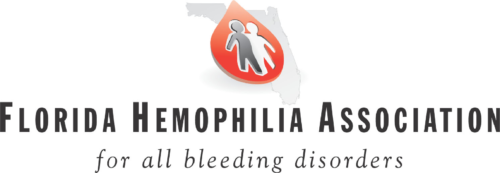
Rare Factor Deficiencies
Factor VII is the most prevalent of the rare deficiencies. The North American Rare Bleeding Disorders Registry (NARBDR) has documented that FVII deficient patients represent 46% of reported rare bleeding disorder patients (excluding FXI deficiency). 35% of FVII deficient patients have documented FVII levels of <20% activity level.
Although specific replacement products have been licensed for this disorder in much of the rest of the developed world, no replacement product is currently licensed to treat factor VII deficiency in the US. Recombinant factor VIIa is licensed to treat patients with inhibitors to factor VIII and IX. Multiple reports exist in the literature regarding the use of rFVIIa for treatment of factor VII deficiency.
Click the link below for information about these rare factor deficiencies:
Factor I Deficiency • Factor II Deficiency • Factor V Deficiency • Factor VII Deficiency • Factor X Deficiency • Factor XI Deficiency • Factor XII Deficiency • Factor XIII Deficiency • Thrombophilia
Platelet Disorders
Inherited platelet disorders are caused by defective (do not work correctly) platelets, low amounts of platelets in the blood, or both. Platelets, cells in the blood, begin to work in the blood stream when there is an injury to the blood vessel wall. They go to the site of the injury, become sticky and make a platelet plug to control bleeding.
The clotting factors then build a clot around the platelets to stop bleeding. Since the platelets have multiple functions in the blood, there are multiple ways they may not work correctly. Types of bleeding problems may include; easy bruising, nosebleeds, gum bleeding, gastrointestinal bleeding, heavy menstrual bleeding, and prolonged bleeding with cuts and scratches.
Treatment depends on the type of platelet problem. The inheritance patterns vary based on the type of platelet disorder.
Other Inherited Bleeding Disorders
A person can have a defect in any one of the 12 clotting factors. These defects are rare. The type of bleeding noted, treatment options, and inheritance patterns vary with each disorder.
Treatment for bleeding disorders varies, depending on the condition and its severity. For some bleeding disorders, there are clotting factor concentrates that can be infused prophylactically or on-demand at home, to prevent or treat bleeds. For other bleeding disorders, there are oral or intravenous medications, topical products, and nasal sprays. Fresh, frozen plasma and platelet infusions are administered in a hospital setting.
